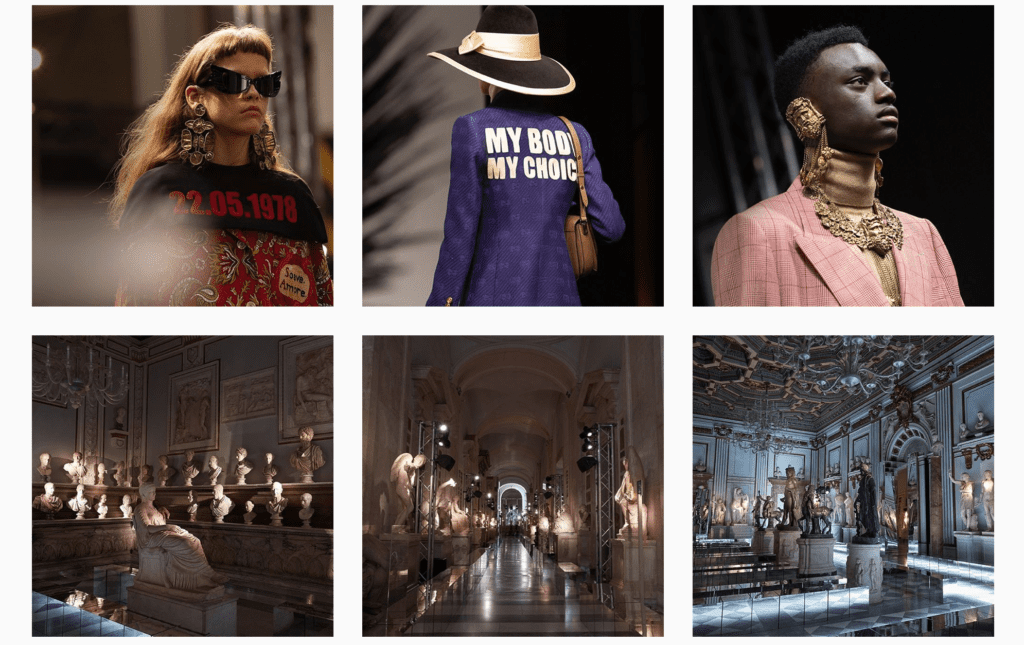Adidas, Burberry, Chanel, Galeries Lafayette, Gap Inc., Giorgio Armani, H&M Group, Hermès, Inditex, Karl Lagerfeld, Kering, Matchesfashion.com, Moncler, Nike, Nordstrom, Prada Group, Puma, Ralph Lauren, Salvatore Ferragamo, and Stella McCartney – these are some of the 32 brands and fashion groups that have agreed to sign on to a pact headed up by Kering chairman and CEO François-Henri Pinault in an effort to “reduce the environmental impact of their industry.”
According to a release from Kering, which was issued on Friday, “32 leading companies from the fashion and textile industry have given themselves a set of shared objectives in the form of a Fashion Pact,” which focuses on “three essential areas for safeguarding the planet.” These include “stopping global warming by creating and deploying an action plan for achieving the objective of zero greenhouse gas emissions by 2050,” “restoring biodiversity to restore natural ecosystems and protect species,” and “protecting the oceans: by reducing the fashion industry’s negative impact on the world’s oceans through practical initiatives, such as gradually removing the usage of single-use plastics.”
Kering, the parent company to Gucci, Saint Laurent, Balenciaga, and Alexander McQueen, among other luxury brands, announced the Fashion Pact initiative – which is being carried out at the direction of French President Emmanuel Macron – ahead of the G7 meeting at Biarritz beginning in Saturday. “Meaningful change will start here, given the volume and breadth of companies that have agreed to be part of this pact, and that is extremely exciting,” said Marie-Claire Daveu, the chief sustainability officer of Kering.
The announcement of the Fashion Pact – which is firmly in line with the fact that “protecting the environment will be a leading issue at the G7, with French President Emmanuel Macron and United Nations Secretary General Antonio Guterres having expressed concern this week” over recurring environmental tragedies, per Reuters – is certainly a noteworthy one, particularly given the names at play (some of the biggest in the fashion industry save for Kering’s closest rival, Louis Vuitton parent LVMH, which is noticeably absent from the list of Pact signatories) and the increased attention to the fashion industry’s role in the global climate crisis.
Nonetheless, as of now, it is unclear how – exactly – the Pact will actually result in tangible change given its structure as a voluntary organization that operates based on a “a set of guidelines” that are not legally binding.
Instead of legally actionable terms with “punitive measures [that will] be imposed should [the signatories] fall short of targets,” which do not exist, according to the New York Times’ Elizabeth Paton, the progress of the 32 companies when it comes to the Pact’s goals – ones that are based on those set forth by the Science-Based Targets initiative (a joint initiative by the CDP, UN Global Compact, WWF, and WRI) – will be handled more in an annual self-reporting and self-policing manner. A lack of legal ramifications should a company fall short of its target is certainly part of the appeal of the Pact.
“This is not about regulation,” Ms. Daveu told the Times. “We cannot punish groups directly. But by committing to improved and collective transparency, there is an incentive for those in this pact to stick to targets and not fall behind.”
This lack-of-legal measures perk is paired, of course, with the ability of brands to announce their involvement. As of the time of publication, Coach’s parent company Tapestry and fellow American retail giant PVH, which owns Calvin Klein and Tommy Hilfiger, as well as retailers like Selfridges and Nordstrom had revealed their participation by way of press releases.
While companies like adidas and Kering, for instance, are making waves in the sustainability space by way of the use of recycled plastics and a movement away from animal fur (although it is unclear that the synthetic alternatives are actually more environmentally friendly), for instance, the Fashion Pact includes some interesting names, such as fast fashion giant H&M and Inditex, the latter of which owns Zara.
It is unclear how, exactly, companies whose entire business models depend the high turnover of low-cost disposable garments and accessories, will ever be able to adequately claim sustainability. And to some extent, the same could also likely be said about high fashion brands, which similarly peddle novelty and seasonality to consumers for the purpose of selling more goods, and produce waste byproducts of their own, whether it be in the form of excess dyes or unsold products.
With all of this in mind, there is one thing, in particular, that experts say will be integral in setting the Pact apart from any of the other private-sector accords already in play: rigorous transparency requirements. As Ilishio Lovejoy, project manager for policy and research at Fashion Revolution, told EuroNews, “The pact must feature ambitious targets and required reporting to ensure transparency in the brands’ progress” when it comes to the targets at play.
“A follow-up meeting confirming more in-depth pledges will be held in October,” according to the Times.













